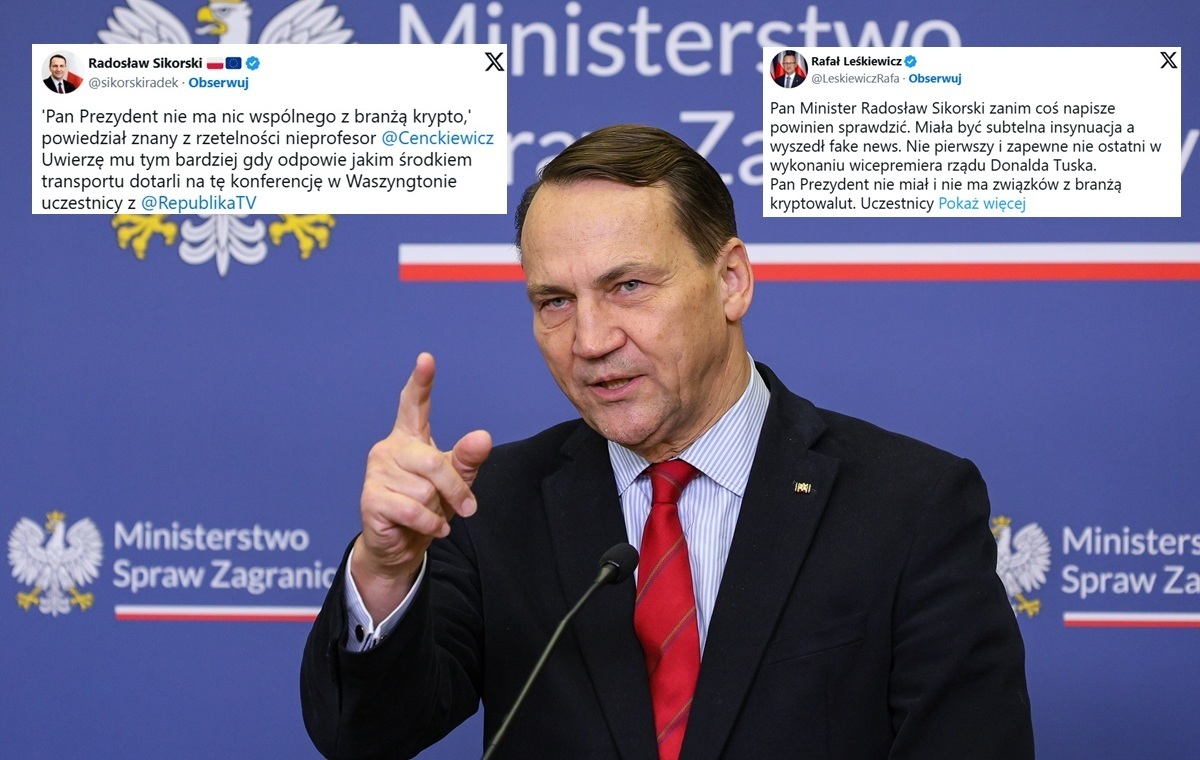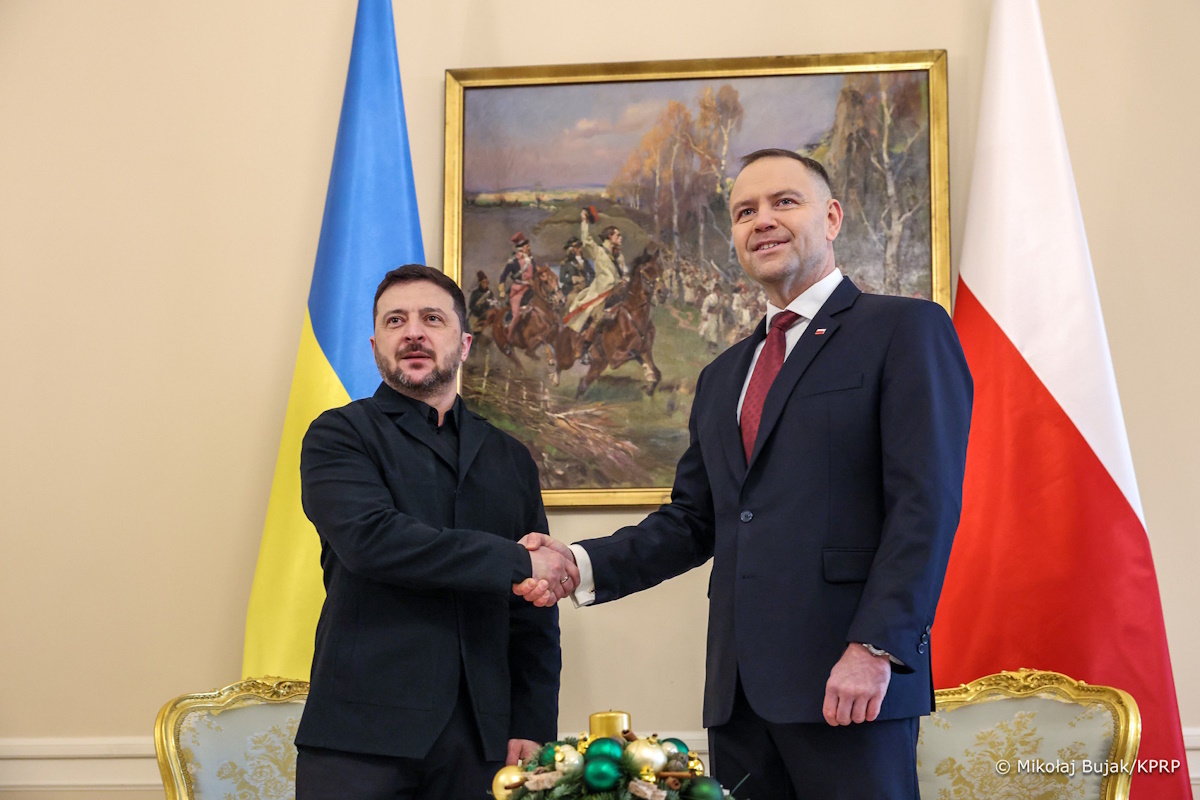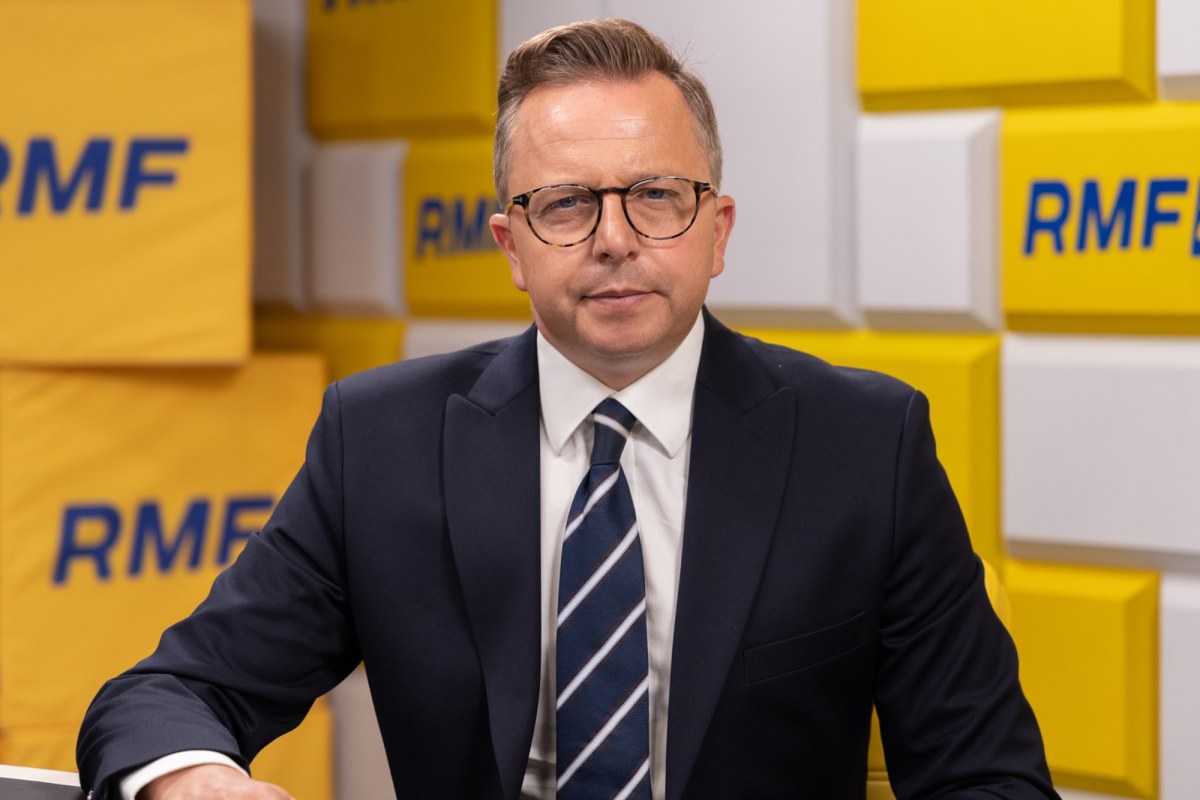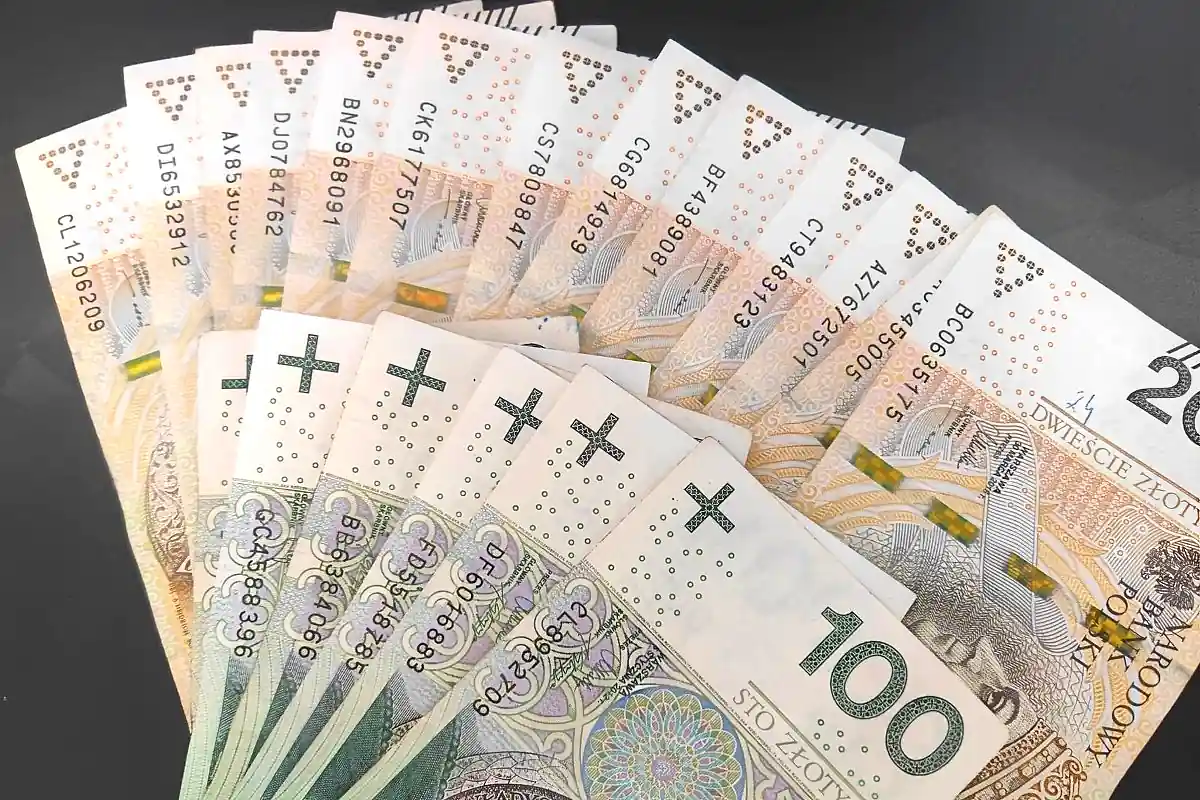Turkey and the USA - Cost-effective standardisation
On September 25, Turkey's president Recep Tayyip Erdoğan met with US leader Donald Trump at the White House. During the visit, a memorandum was signed on strategical cooperation in the field of civilian atomic energy, including the usage of tiny modular reactors (SMR), and agreement was reached on the acquisition of 225 Boeings by Turkish Airlines for about $22 billion. An agreement was besides concluded for Ankara to acquisition US LNG worth $43 billion in 20 years. The Parties besides stressed the support for Syrian territorial unity and integrity. In addition, they raised the disputed issues, primarily the issue of the sale of F-35 fighters, the US sanctions imposed on Turkey for purchasing the S-400 strategy from Russia, and the modernization of the already utilized F-16 fighters and the acquisition of fresh ones. There has been no breakthrough on these issues, although the leaders of both countries stressed that the talks were going in the right direction. The words of Trump lay a shadow on their declarations that resolving the problems requires concessions from Turkey and that Ankara should halt importing Russian oil.
From a Turkish perspective, the gathering was to culminate in the normalization of relations with Washington, initiated after Trump took power. Signing high-value contracts would convince him to make greater concessions. The effects of Erdoğan's visit require that she be treated as an crucial step towards the repair of bilateral relations. However, their full standardisation remains difficult, and its pace will most likely depend on Turkey's tendency to fulfil the demands of the US leader.
A large directory of disputes
The Turkish-American relations in the last decade have been highly tense (see besides footnote). A directory of disputes. Visit of the Head of Diplomacy of Turkey to the USA). The biggest controversy between the 2 countries was caused by the policy towards Syria, especially after 2015, by the United States' effort to establish cooperation with the Syrian Kurds, first in the form of the People's Self-defence Units (YPGs), and then mainly Syrian Democratic Forces (SDFs). Washington decided to cooperate with YPG, among others, in the Turkish-American fiasco of the training program of the Syrian opposition to fight the muslim State (PI). The Kurds proved to be a stronger and more determined force to fight jihadists. However, Turkey considered YPG to be a Syrian extension of the Kurdistan Working organization (PKK) – an organization considered terrorist not only by Ankara itself, but besides Washington. She so claimed that the American ally was working with terrorists, thereby reconciling her safety interests. The territorial aspirations of the Syrian Kurds were worrying – decision-makers in Ankara feared that this community's efforts to build autonomy in Syria would spill to the south-east of their country.
The second major problem became the acquisition by Turkey of the S-400 anti-aircraft and rocket defence strategy in 2017. Washington has long signaled Ankara that this should not include the transaction in question, as the implementation of the strategy in Turkey will have negative consequences for the integrated NATO air defence system, including this country. The United States was afraid that the data collected by S-400 radar sets would be easy accessible to Moscow and would exposure the properties of reduced detection of F-35 aircraft. The Turkish side considered these arguments to be political and claimed to have been forced to get an S-400 from the FR, as allies did not want to sale its Patriot strategy on interesting terms (she peculiarly wanted to transfer technology). erstwhile she did not resign from the agreement with Russia, Trump's first administration decided to take unprecedented steps. First, in July 2019, she excluded Turkey from a consortium producing an F-35 fighter and refused to sale it. Subsequently, in December 2020, it imposed sanctions on it, including the ban on export licenses for technology and goods from the US covered by the Turkish Defence manufacture Presidency, which made it hard for Ankara to access US military components.
Turkish-American relations were besides affected by the refusal to extradite in the United States Fethullah Gülen, a Muslim minister accused by Ankara of carrying out a failed coup in 2016. This reinforced Turkey's popular conspiracy theories that it was Western allies who stood behind a coup attempt, and contributed to the anti-Western return in the state's abroad policy. The problem was besides the Turkish Halkbank case, which was allegedly to engage in circumventing sanctions against Iran.
Standardisation procedures
After being ruled in Washington by the second Trump administration, Turkey began efforts to rebuild its relation with the US – she saw the fresh president as more open to seeking solutions than Joe Biden, who did not attach much importance to relations with that country, and Erdoğan in pre-election interviews called him dictator.
Syria became an crucial component of the approach to the United States, where in late 2024 the government was changed and the control of the state was taken over by the allied group Hajat Tahrir asz-Sham towards Ankara. It presented itself to the US as a key regional player, ready to participate in the stabilisation of the Syrian State and seeking its unification within the current borders (see The Syrian dilemmas of Turkey: success and then what?). The next step in improving bilateral relations was Turkey's readiness to support government in Damascus – and the United States – in the fight against terrorist groups. This was not only about the Kurdish terrorist groups that she saw, but besides about PI remains. Ankara's willingness to fight jihadists was to get Washington to abandon its cooperation with YPG. It was besides thought to be a signal straight at Trump – Turkey wanted to introduce herself in this way as an actor who could assist American interests in the region and enable them to complete military operations in Syria (there are about 2,000 American soldiers present).
Tom Barrack, the United States Ambassador to Turkey since May 2025 and peculiar Envoy for Syria, besides played an crucial function in improving bilateral relations. He stressed Ankara's strategical importance as an crucial NATO ally and a possible U.S. partner in the stabilisation of the mediate East. He besides supported the arms negotiations, arguing that Turkey's re-integration into the F-35 programme would strengthen the ties between states and Washington's position in the region. In addition, in May this year he co-founded the US-Turkey Working Group on Syria, which was to improve the coordination of safety and stableness activities in the last of these countries. Ambassador Barrack made a good impression on Turkish decision-makers, supporting their imagination of the integration of Kurdish forces into the Syrian government army. He stressed respective times the central function of Ankara in the fight against PI.
Turkey's attitude towards the war in Ukraine has besides improved bilateral relations. Ankara stressed its support for Trump's attempts to resolve this conflict (see IP/10/73). Turkey in Trump's planet – for problem Europe?). She tried to present as a mediator in negotiations between Moscow and Kiev, as well as as as an intermediary in the United States' dialog with Russia (in February and April this year both countries met in Istanbul). To strengthen the image of a constructive regional actor in Washington, in the early weeks of the presidency of the U.S. President, she was careful about Israel's actions in the Gaza Strip and the mediate East.
Not an easy way to rebuild an alliance
The Turkish side has well prepared for Erdoğan's talks with Trump and has achieved success in confirming the common imagination of Syria by the Americans, ensuring that they will proceed to normalize bilateral relations, or suggesting that the US leader may do so quickly. However, the problem for Ankara is that no breakthrough has been achieved on key issues, especially its return to the F-35 programme or the abolition of US sanctions. The Turks were surely aware that solving these problems would not be easy. However, they may have been amazed by Trump's assertiveness – indicating readiness to compromise in these cases in exchange for Ankara's indeterminate moves or a call to halt Russian oil imports.
The attitude of the United States leader indicates that further negotiations between Turkey and the US may prove complicated. Washington may argue that in 2 delicate issues – the sale of F-35 fighters and the abolition of sanctions – it intends to restrictively approach Section 1245 of the National Defence Authorisation Act for the fiscal year 2020 (NDAA FY2020) and Section 1241 of the National Defence Authorisation Act for the fiscal year 2021 (NDAA FY2020). They make a breakthrough in these areas dependent on the confirmation by the Defence and State Secretaries (NDAA FY2020 concerning F-35) and the president (NDAA FY2021 concerning CATSA) to the applicable authorities that Turkey: (a) removed all S-400 equipment and personnel, (b) made S-400 or equipment acquired in its place not operated or maintained in that country by the FR, (c) provides guarantees that it will never acquisition the S-400 or its successors.
Meeting these requirements has been the subject of intense negotiations over the last 5 years. The U.S. approach has changed during the process – first of all, the definition of Turkey's "holding an S-400" has been narrowed down, which Ankara did not agree to anyway. The stiffening of Washington's position and the link between its conditions and Turkey's purchases of Russian oil would aggravate the negotiating position of the latter.
Since the outbreak of the war in Ukraine, Ankara has tripled imports of oil and petroleum fuels from the FR (see chart), including for refining and re-exporting to abroad markets, including the EU. This allowed her to save billions of dollars in energy bills thanks to discounted prices of imported natural material (even $5–20 little per barrel for purchases of the Urals mixture), while generating profits from the sale of refined products.Departing from this strategy would mean an increase in fuel and energy rates for Turkey.
Ankara may propose a symbolic regulation on Russian oil imports, but it is likely to argue the complete cessation of imports. The agreement with the US on LNG, as well as the unlocking of supplies of natural material from Iraqi Kurdistan to Turkey, which coincided with Erdoğan's visit to Washington, will not change much in this respect, as they will not improve the country's energy situation immediately.
Chart. Turkish oil and fuel imports from Russia

Source: Turkish Energy marketplace Regulatory Office, epdk.gov.tr.









